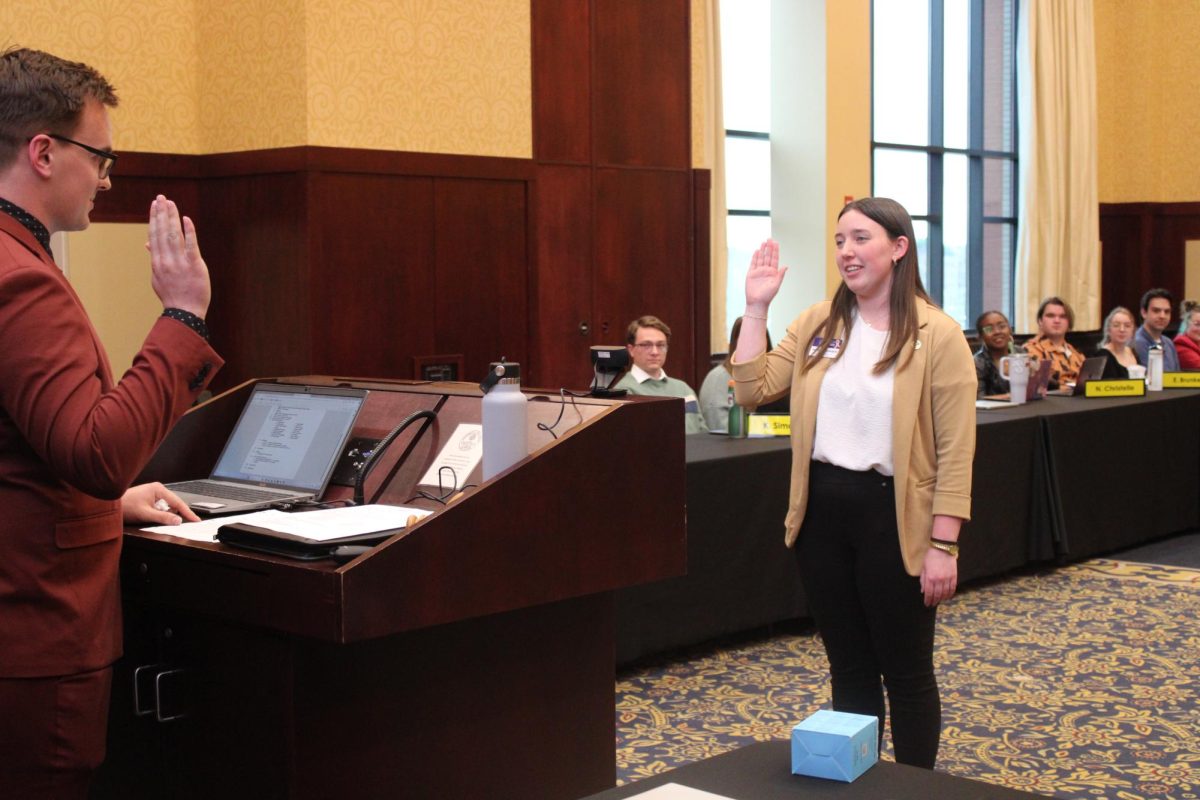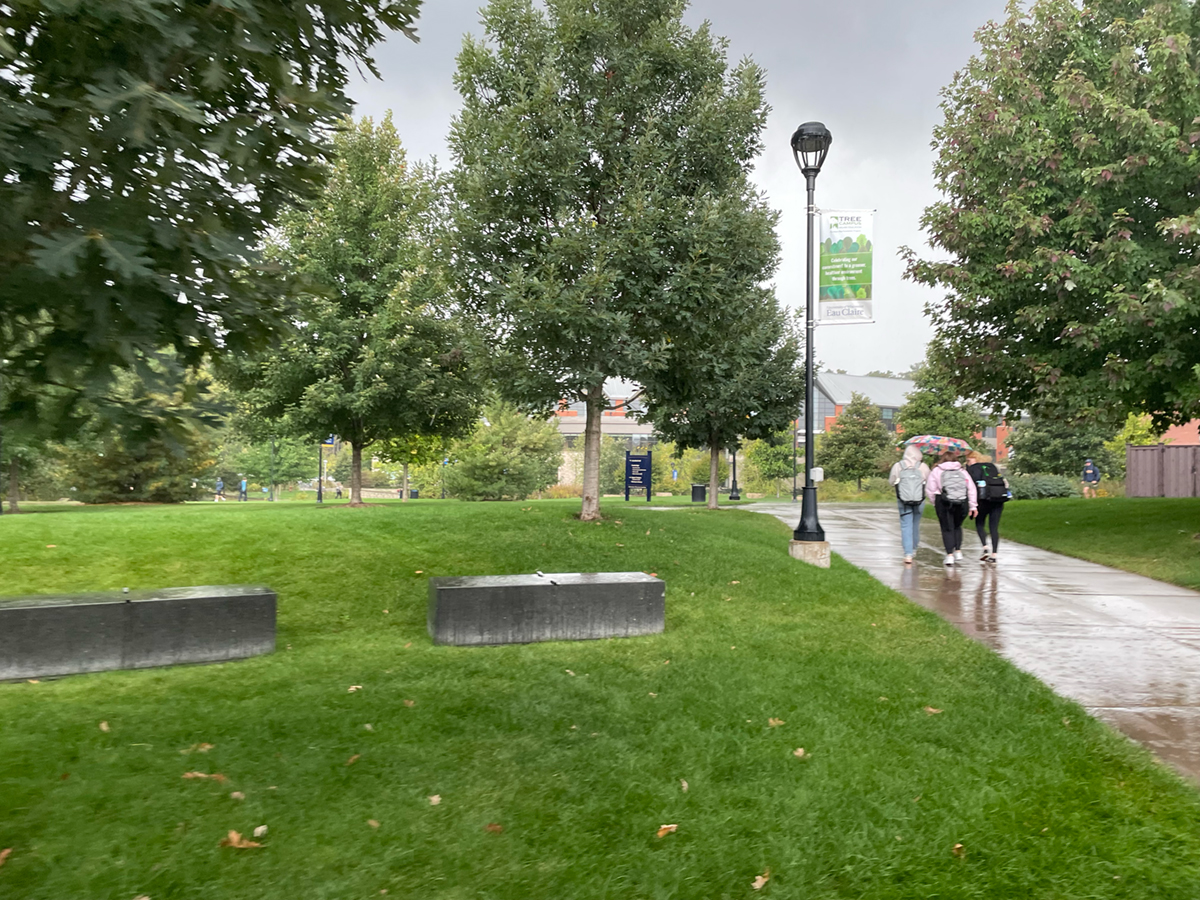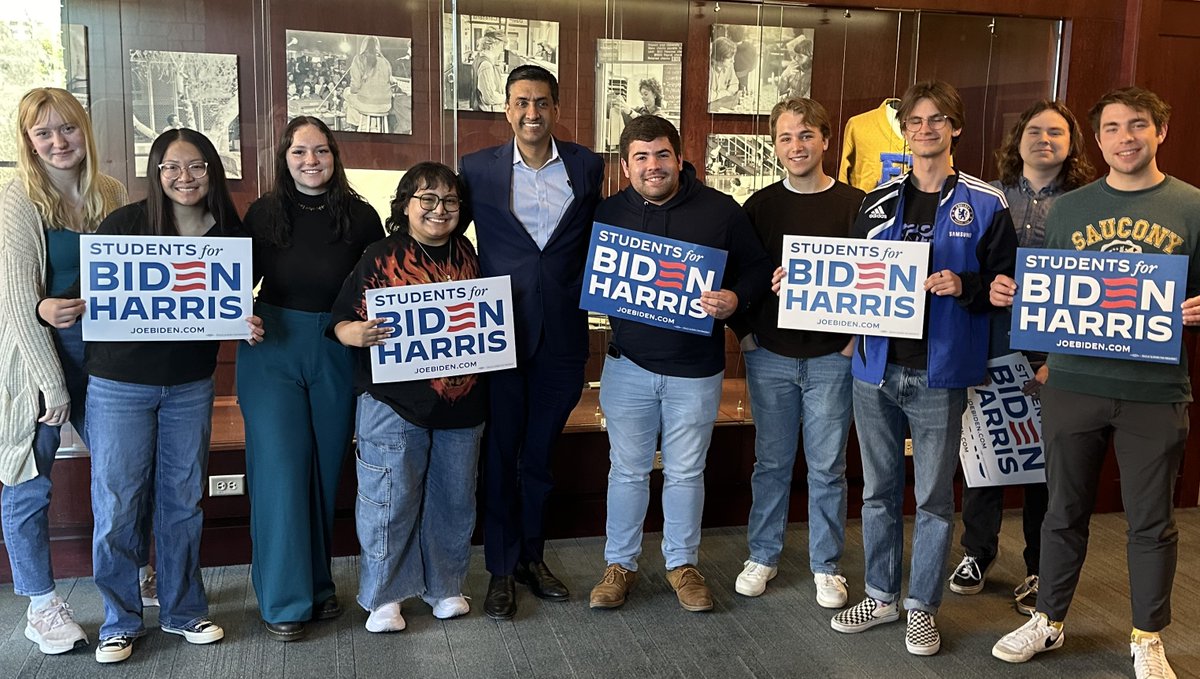 Nicole Robinson
Nicole RobinsonAs Nov. 2 approaches, campaigns for every political office are heating up, especially in the swing region of western Wisconsin. The Senate race is no different, as Sen. Russ Feingold, D-Wis., faces Republican challenger Tim Michels in Wisconsin’s bid for the U.S. Senate.
Feingold, state senator from 1982 to 1990, was elected to his current Senate seat in 1992. He said in an interview with The Spectator following an Oct. 16 debate in Zorn Arena that he knows the importance of higher education in today’s world.
“Without a college degree or significant post-secondary education, it is a lot harder to find a successful path through today’s labor market,” Feingold said.
According to his Web site, he already has sponsored and passed an amendment to increase the maximum Pell Grant award by $450. He also has plans to further increase a Pell Grant’s maximum amount that can be awarded to a student from $4,000 to $4,500.
Michels, a businessman who has served 12 years of active duty as an Airborne Ranger infantry officer in the U.S. Army, said he also knows the importance of higher education and the burden of paying for it.
“I believe that not only should we continue to allow savings for education to grow tax-free, but we should also make sure tax-free withdrawals for education become permanent,” he said.
Michels currently is co-owner and vice president of Michels Corporation in Brownsville. The company constructs communication, energy and transportation infrastructure.
“Feingold has set the standard for a U.S. senator,” senior Becky Poitrowski said. “He has proven that he researches every bill, listens to the people of Wisconsin and votes based on what is best for the people – not what is best for the other politicians.”
Both candidates also support creating new jobs and bringing back old ones that have been lost to other countries.
Feingold said Wisconsin has lost manufacturing jobs due to unfair and unbalanced trade agreements, as well as other agreements. He has strongly supported legislation to return jobs to the United States.
Feingold also has supported legislation that helps small businesses, according to his Web site. He voted against China’s Most Favored Nation status and other trade deals he sees as unfair to U.S. companies and workers.
Michels said creating jobs has been a cornerstone of his campaign. He strongly supports the Unfair Trade Task Force, which monitors foreign countries and businesses to identify problems detrimental to job creation in America.
Michels said he believes in free, but fair, trade. He also supports revoking China’s preferred trade status if it continues to hurt the U.S. economy.
“Michels made it really clear that he supports President Bush’s tax cuts, which in the end trickle down to everybody, which helps small businesses create jobs,” senior Jake Curtis said. “(Tax cuts) help create a strong job market, so there will be jobs available for us when we graduate.”
Health care also has greatly affected both campaigns.
“The health care system in America is in disrepair and needs crucial reform,” Feingold said.
He has fought to reform Medicare and protect its solvency, pass a meaningful Patient’s Bill of Rights and maintain affordable prescription drugs for seniors, according to his Web site. Feingold said he supports the importation of drugs from Canada and Europe.
While Michels agreed health care is an important topic facing Wisconsin voters, he has a different idea about how to make it more affordable.
“All Americans deserve … access to health care coverage that meets their needs,” Michels said.
He supports encouraging competition among health care providers to give people more choices. Michels said frivolous lawsuits are making health care unaffordable for Americans by driving up the cost of the provider’s insurance. Michels also supports re-importing prescription drugs from Canada, as it’s a way for seniors to have access to lower costs, according to his Web site.
While the candidates’ views differ, both have been vying for votes in this swing area.
Feingold has touted education and health care among top priorities for Wisconsin and for the country.
“I am dedicated to improving educational opportunities for every American at every level, from preschool and beyond,” he said. “I am dedicated to expanding the availability of health care to all Americans.”
Michels also has a list of priority topics he will fight for in the Senate.
“In the Senate, I’ll work to protect Social Security and Medicare, improve education, fight crime, provide access to quality health care and rebuild the military.”






